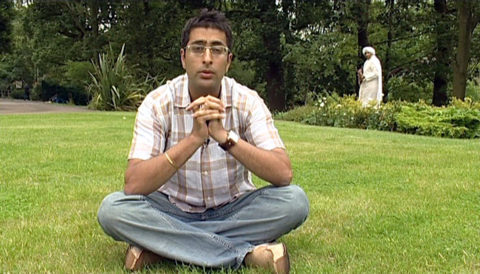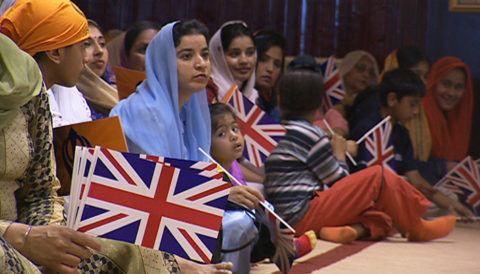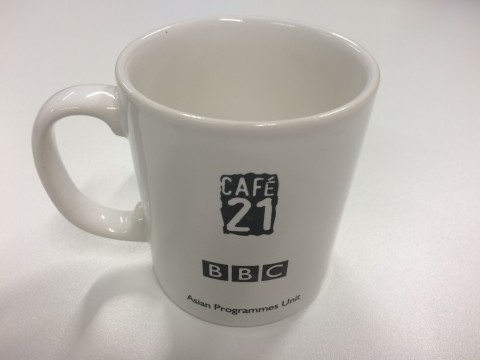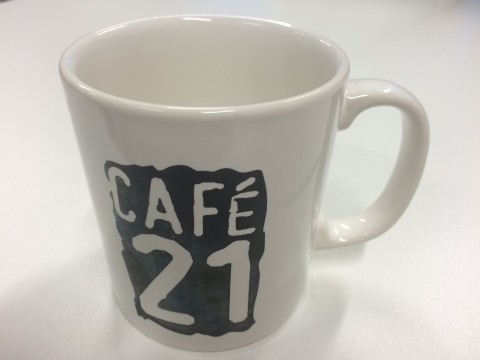(This article was first published in the November 2023 edition of the Pebble Mill Newsletter. This link will take you to back copies: us3.campaign-archive.com/home.
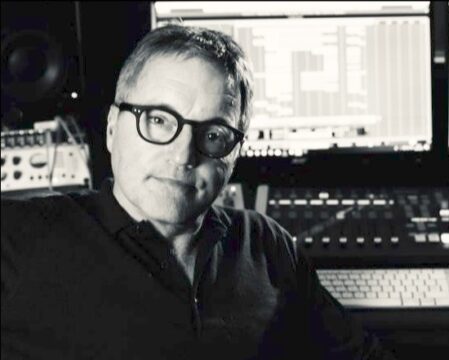
I was always enthralled by the BBC, growing up in the 1970s and I harboured a secret ambition to work for the corporation one day.
In one of those perfect Sliding Doors (https://en.wikipedia.org/wiki/Sliding_Doors) moments, I went to a sixth-form careers talk one afternoon at school. A teacher had done some work experience at Radio Birmingham and told us all about Pebble Mill and Radio Production. Afterwards, I told him about my dream of working for the BBC.
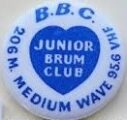
He took me to his office and gave Roger Thomas, the BBC Radio Birmingham Education Producer, a ring to see if I could help out on the young people’s show Radio Brum Club (http://news.bbc.co.uk/local/birmingham/hi/tv_and_radio/newsid_8944000/8944511.stm).
The thrill of walking into Pebble Mill for the first time was one of those life-changing moments – I thought, “This is for me!” – I went in every week and got more and more involved, learning all about radio production.
I got into making jingles and loved getting creative, using sound effects and tape echo. I’d spend hours in the studio immersed in spools of reel-to-reel tape, often until late into the night, surprising Dennis from security, who would have to let me out through the back entrance.
In the meantime, I went on to Birmingham Polytechnic to do a three-year Media Studies course. After finishing there, I freelanced for a year or so at Radio WM, as a Station Assistant. I had a brilliant time working with amazing people and I’m so grateful for the opportunities I was given and everything I learned.
Then I heard that Jim Knights was looking for a Sound Recordist at Magpie Films. I went to see him in the Magpie Portakabin behind the OB garage and he sent me on a week’s tryout with the Midlands Today (https://www.imdb.com/title/tt6183700/?ref_=fn_al_tt_1) crew. Amazingly, Jim offered me the job – a whole new experience, working in TV.

Christmas 1989/90. Piece to camera in front of the ‘People’s Palace (https://en.wikipedia.org/wiki/Palace_of_the_Parliament)’, Bucharest for Canadian Television News, CBC. Reporter is Alan Abel. I can’t remember the Cameraman’s or Producer’s name, but I do remember coming under fire from snipers on the trip!
Meanwhile, outside of work, I was also really into music. I didn’t have any formal training but dabbled in the piano and loved electronic music and synthesisers. Around 1981, Roland – a Japanese synthesiser manufacturer, brought out a model called Juno-6 (https://www.perfectcircuit.com/signal/roland-juno-history) . My friend suggested I should buy one and a lightbulb switched on in my head – why not?! From the minute I got it out of the box, plugged it in and started playing, I was hooked and haven’t stopped since.
I wrote loads of songs and got a band together called ‘The Cool Fish’ with Samantha Meah, who went on to present Network East, followed by her shows on Radio WM. We got some pretty decent gigs too, but I was more into the studio side; writing, creating and mixing.
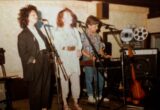

The second big sliding doors moment happened one evening after work, in the BBC Club on the second floor. Magpie Cameraman, Charlie Pitt, was chatting with Graphic Designer, Richard Burns, so I wandered over to say hello. Charlie introduced me and enthused Richard about my music, the Juno 6 synth and the great sounds it made. Richard uttered the immortal words, “I need some music for the new titles for Midlands Today (https://en.wikipedia.org/wiki/Midlands_Today) – do you fancy having a go?”. I didn’t hesitate!
I put a demo together and, to my delight, they liked it. My first theme tune was officially commissioned by the BBC Music Department and I was booked into Studio 1 at Pebble Mill to re-record it at broadcast quality. I was thrilled – in true BBC style, there was an engineer, assistant and even a guy to check the wiring was okay on my synth before I was allowed to plug it in.
Eventually, I left Magpie and in 1987 went freelance, as a Sound Recordist/Music Composer. Music commissions from Pebble Mill started to pick up with Boating Butler (https://www.youtube.com/watch?v=HiCmpLBeTjI&list=PL1vazjYo0VNmcJpuV3JhDHtZSS5GIm2Gx) , Take A Break and my first network shows, On the House (https://davidlowemusic.com/project/on-the-house/) and Countryfile (https://www.youtube.com/watch?v=xOMXAahPNVA) , after its regional predecessor, Your Country Needs You.
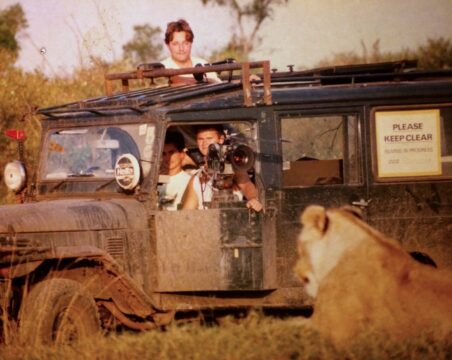
I started a long working relationship with Simon King (https://en.wikipedia.org/wiki/Simon_King_(broadcaster)) , composing the music with him for King and Company, Walk on the Wildside and co-writing the music with Simon for eight of his Christmas films, starting with Drift The Mute Swan. For Kali the Lion (https://youtu.be/2bb9f3N8_PU) , I met Simon, filming in Kenya and we recorded some local Masai people, which was fantastic.
I met Roy Ronnie’s son, Julian, who was a Musical Director. We got on really well and Julian suggested he could try and get us some work together. True to his word, he landed a meeting with a producer at Saatchi & Saatchi (https://saatchi.co.uk) and a demo for the latest major budget global TV ad for British Airways. Julian had suggested an idea – as the commercial had a world flavour – how about we try a world music mix of an opera theme? To our amazement, they liked our track and flew us to Los Angeles to complete it! It took some work and a fair amount of stress to get the idea right, but It was finally signed off six months later, back in the UK. The BA ad (https://davidlowemusic.com/project/british-airways/) was our big break; from then on, I was composing full-time.
In the meantime, work came in from Pebble Mill throughout the 1990s with the Pebble Mill (https://davidlowemusic.com/project/pebble-mill/) theme, The Car’s the Star (https://davidlowemusic.com/project/the-cars-the-star/), Jeremy Clarkson’s Extreme Machines (https://davidlowemusic.com/project/jeremy-clarksons-extreme-machines-2/), Motorworld (https://davidlowemusic.com/project/jeremy-clarksons-motorworld/), Tracks (https://davidlowemusic.com/project/tracks/), Noel’s Addicts (https://www.youtube.com/watch?v=EXf81cmm5d8), Telly Addicts (https://www.youtube.com/watch?v=QfL3O7dW-q0), Real Rooms (https://youtu.be/JI3Xw92ewpo?si=YSbrUmyNCikToeND&t=796) and Ray Mears ’World of Survival (https://davidlowemusic.com/project/ray-mears-world-of-survival-2/) .
Julian and I met Charlie Gillett, who signed us up to his label, Oval Music (https://www.ovalmusic.co.uk) . After a while, Julian moved back to musical theatre and I made my first album, entitled Dreamcatcher (https://davidlowemusic.com/product/dreamcatcher-dreamcatcher/), released in 1997.
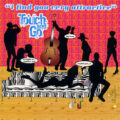
In 1998 with Charlie and Oval, another massive dream became reality – I had a hit single in the charts with Would You…? (https://davidlowemusic.com/project/touch-and-go/) The project name was Touch and Go (https://davidlowemusic.com/product/i-find-you-very-attractive-touch-go/) . It got to Number 3 in November 1998 and Number 1 in the UK Indie Chart. 25 years later (as I’m writing this), in October 2023, a remix by DJ Campbell hit the charts again at Number 35, which is really exciting.
In 1999, BBC Worldwide Music got in touch to ask if I’d like to be considered for the BBC News Brand project, with a list of other composers. I had a meeting with Martin Lambie-Nairn, the Creative Director, who told me they were looking for a complete rebrand and a totally new sound.
A couple of weeks later, I got a call to say they wanted to work with me – I was over the moon. I went to another meeting where Martin explained more about what he was looking for – a distinctive memorable sound, instantly recognisable, a modern and different new idea that would retain the integrity and gravitas of BBC News. They played me a dance track they’d cut some graphics to, which worked really well. We were talking about distinctive sounds and the GMT signal pips came up, as they are instantly recognisable, as soon as you hear them. As we talked, an idea was formulating in my head – the pips with a dance beat. I had to meet the BBC Team fairly swiftly with some ideas, to get the ball rolling. When I got back to my studio, I put my idea together using the pips with a dance beat at 120 bpm (two beats per second), a bass line with a world feel and two big cinematic chords underpinning it all, from minor to major.
Back at Television Centre two days later, I played my idea to Martin and the assembled team of BBC News executives, nervously waiting for their response. Martin looked at me wide-eyed and finally exclaimed, “That’s it! You’ve done it!! That’s the idea – don’t change a thing!”
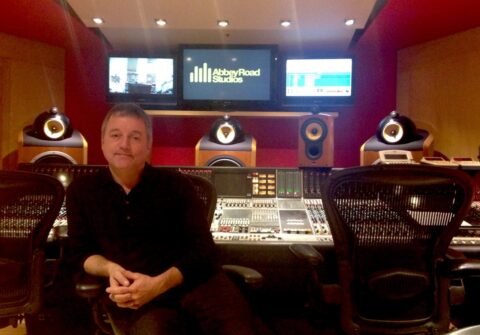
25 years later, the music has evolved but the core idea is still the same. I’ve done over 2,000 variations of the music for BBC News globally, including the now-famous Countdown (https://www.youtube.com/watch?v=bP2OtfqZDT8) sequence at the top of the hour. In 2013, we recorded the countdown with the BBC Concert Orchestra at Abbey Road Studios and I adapted it for a sombre version, used when the Queen passed away.
Other highlights have been Grand Designs (https://davidlowemusic.com/project/grand-designs/), The One Show (https://davidlowemusic.com/project/the-one-show/), Cash in the Attic (https://davidlowemusic.com/project/cash-in-the-attic/) and the idents for the BBC World Service (https://davidlowemusic.com/project/bbc-world-service/), in 2007. Creating brand and news idents for international clients has also been interesting, including for CCTV (https://davidlowemusic.com/project/cctv-1/) in China, NDTV (https://youtu.be/wH4utRfurG0) in India and Al Arabiya TV (https://davidlowemusic.com/project/al-arabiya/) in Dubai. For those, I used instrumentation and melodic flavours and textures from each country.
I’ve also enjoyed arranging and creating new versions of some iconic tunes – most recently with the Antiques Roadshow theme and also Panorama, The X Factor (https://davidlowemusic.com/project/x-factory-celebrity/) and, in 2012, a version of Chariots of Fire (https://davidlowemusic.com/project/london-olympics-2012/) for the London Olympics, which was played during the medal ceremonies.
It’s now forty years since I wrote that first theme for Midlands Today (https://www.youtube.com/watch?v=fgLBR_hZbfE). Having wanted to work for the BBC from so early on, to end up creating something iconic for the BBC is such a thrill and honour. I’ve been fortunate to have enjoyed a really exciting career and it is still going strong. None of it would have happened without my amazing time at Pebble Mill, where it all started and where I learned so much.
David Lowe Music (https://davidlowemusic.com)
